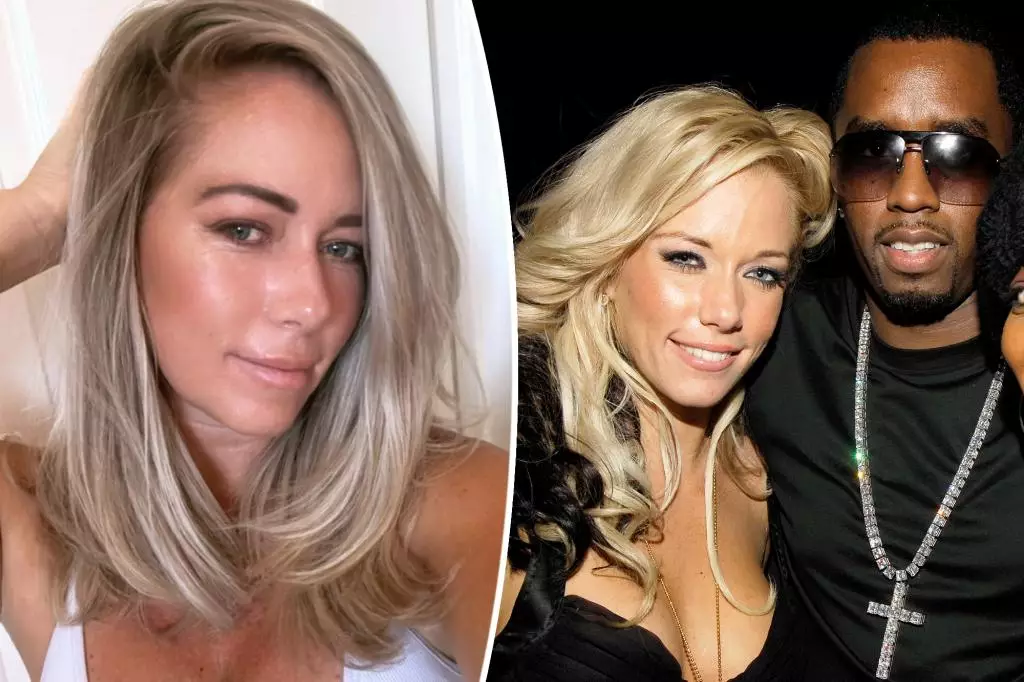In recent years, the allure of celebrity culture has often masked the darker undercurrents associated with it. A stark reminder of this can be found in the recent legal troubles of Sean “Diddy” Combs, who faces serious allegations including sex trafficking. In a controversial commentary, Kendra Wilkinson shared her experiences attending Diddy’s famous parties, noting that while she had a great time, the disturbing nature of the allegations cannot be overlooked. This juxtaposition of enjoyment and severe misconduct invites deeper examination of Hollywood’s party culture and the ways it can shape and taint personal experiences.
Kendra Wilkinson’s remarks about her time at Diddy’s parties provide a lens through which we can view the often contradictory nature of Hollywood’s social scene. Her account on “The Kylie & Jackie O Show” reveals a carefree attitude towards her past, where she claims to have never witnessed anything overtly negative. This raises a poignant question: how often do we turn a blind eye to uncomfortable truths in pursuit of enjoyment? Wilkinson acknowledged that while she never experienced harm, she was not dismissive of the potential for darker occurrences. Her comments reflect a typical sentiment in party culture—an acceptance of ambiguity wherein fun can exist alongside peril.
Diddy’s parties have, for years, epitomized the excesses of Hollywood. Known for attracting high-profile celebrities, these events have functioned as a microcosm of the broader entertainment industry—where glamour often disguises underlying issues of morality and legality. Wilkinson’s comparisons to the notorious Playboy Mansion illustrate how sex and partying have often been conflated within these elite circles, leading participants to believe that notoriety absolves them from accountability.
The revelations surrounding Diddy’s parties, particularly the staggering number of baby oil bottles found during a federal raid, point to the extent of debauchery and criminal behavior alleged to have occurred. These allegations shatter the façade of harmless celebration, hinting instead at the systemic issues lurking below the surface of fame and fortune.
The fallout from Diddy’s legal troubles has been swift. With serious charges including sex trafficking and racketeering conspiracy, the rapper’s case has opened the floodgates for others to come forward with their own stories of alleged abuse. Diddy’s initial denial of accusations made by his ex-girlfriend, Cassie Ventura, gave way to legal proceedings after she highlighted years of alleged torment during their relationship. This public unraveling serves not only as a personal crisis for Diddy but also as a societal reckoning regarding the treatment of women in the entertainment industry.
To compound matters, the release of a video reportedly depicting Diddy assaulting Cassie accentuates a painful reality: celebrity status does not equate to invincibility. The swift emergence of subsequent claims underscores a transformation in how society responds to accusations of monstrous behavior.
Exploring the Consequences of Fame
The ramifications of Diddy’s situation extend far beyond his personal life; they reverberate through the industry, prompting a reevaluation of how celebrities wield their influence and the environment cultivated at high-profile events. Several of the allegations against him evoke a troubling dialogue about the normalization of toxic masculinity and exploitation within the realm of celebrity culture. As more voices join the chorus of victims seeking justice, it becomes increasingly vital to confront the uncomfortable truth that many have sacrificed their dignity and safety on the altar of fame.
The contrast between Kendra Wilkinson’s lighthearted nostalgia for Diddy’s parties and the profoundly alarming allegations now associated with them catalyzes an urgent conversation about accountability in the entertainment industry. As we witness high-profile figures grappling with their past indiscretions, it becomes clear that the consequences of unchecked behavior and privilege must be addressed, not only for the sake of the individuals involved but also for the health of the industry as a whole. Now, more than ever, the call for transparency and justice rings louder, urging us all to reconsider what nightlife and celebration should truly represent in a world striving for equity and respect.

